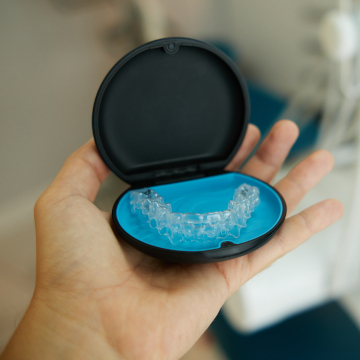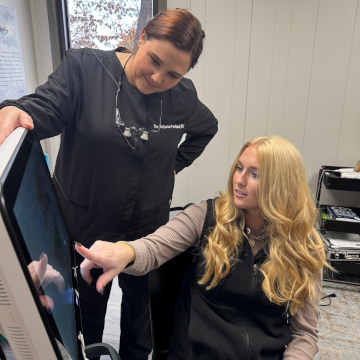Jonesborough, Jefferson City, and Greeneville, TN Dental fillings are a routine and effective way to repair teeth affected by cavities. Most patients experience no issues following the procedure. However, although uncommon, some individuals may have allergic reactions to the materials used in their fillings. If you have sensitivities to metals …
How Your Oral Health Impacts Your Whole Body
Jonesborough, Jefferson City, and Greeneville, TN Over the past decade, research has increasingly shown a powerful link between your oral health and overall wellness. Conditions like diabetes and heart disease have been found to share strong associations with the health of your gums and teeth. In fact, studies reveal that …
The Top 4 Benefits of Invisalign®
Jonesborough, Jefferson City, and Greeneville, TN If you’ve ever felt self-conscious about crooked teeth but have avoided braces because of their appearance or discomfort, you’re not alone. Traditional metal braces, with their visible brackets and wires, can be an unappealing option—especially for teens and adults who want a more subtle …
Women and Sleep Apnea: Recognizing the Symptoms and Finding Support
Jonesborough, Jefferson City, and Greeneville, TN Sleep apnea is a widespread but often overlooked health issue affecting millions, particularly women who frequently remain undiagnosed. This sleep disorder can seriously impact overall health and daily functioning if it goes untreated. At Tusculum Dental Care, serving the communities of Erwin, Jonesborough, and …
Alternative Treatments for Sleep Apnea
Jonesborough, Jefferson City, and Greeneville, TN Sleep apnea is a widespread yet serious condition that interrupts restful sleep and affects overall health. While CPAP machines are commonly discussed as the go-to treatment, they aren’t the only option available. At Tusculum Dental Care, serving patients in Erwin, Jonesborough, and Greeneville, TN, …
What Everyone Should Understand About Jaw Popping
Jonesborough, Jefferson City, and Greeneville, TN If you’re noticing popping or clicking sounds coming from your jaw, it might be more than just an odd noise. These could be early signs of TMJ (temporomandibular joint) problems, which many people overlook, thinking they’re harmless. However, ignoring these signals can lead to …






